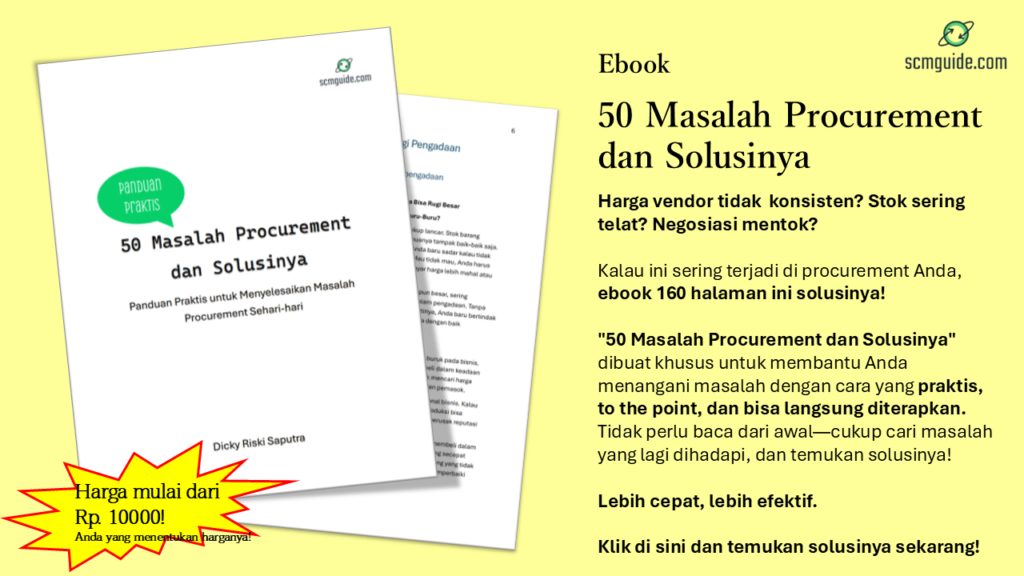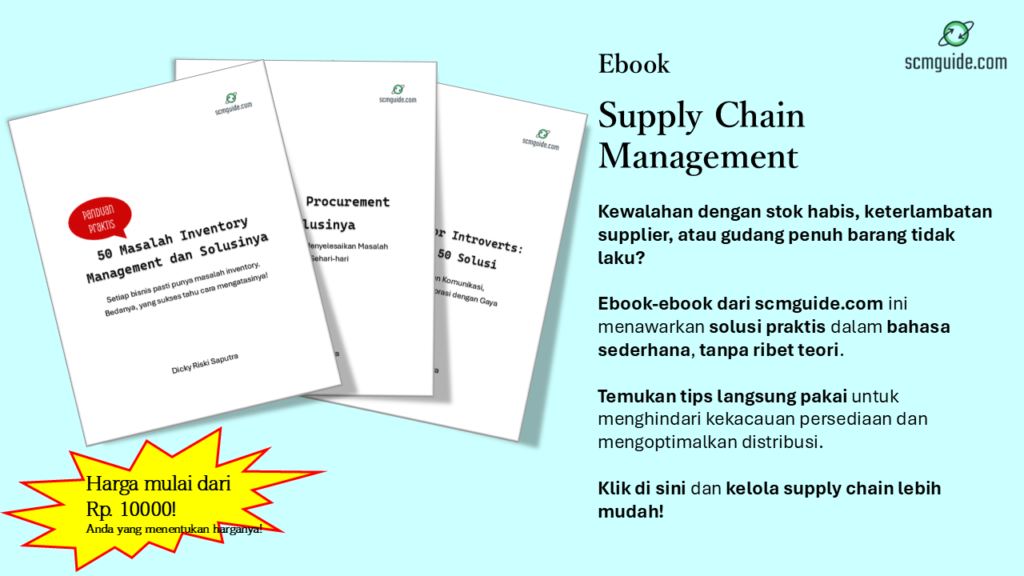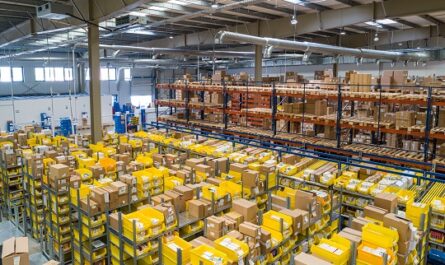When you think of Supply Chain Management (SCM), it’s easy to get lost in the numbers—forecasts, inventory levels, lead times, and delivery schedules. However, SCM is fundamentally about people and communication. It’s about the relationships and interactions that drive the movement of goods and services from one point to another. This human element is what makes SCM both complex and rewarding.
Before we go further into this topic, don’t forget to follow my LinkedIn account. You’ll get more helpful insights on supply chain management there.
Table of Contents
People are the Core of SCM
At its heart, SCM is about creating value through collaboration. Every step in the supply chain involves people—from the supplier who provides raw materials to the customer who receives the finished product.
Each of these individuals plays a crucial role in ensuring that the supply chain functions smoothly. Their skills, decisions, and interactions directly impact the efficiency and effectiveness of the entire process.
Consider this: if a supplier fails to deliver quality materials on time, production halts, leading to delays in delivery to the customer. This chain reaction can affect the entire supply chain, highlighting the importance of each individual’s role. A well-functioning supply chain is a testament to the successful collaboration of all its human components.
Communication is Key
Effective communication is the backbone of SCM. Clear, timely, and accurate communication ensures that everyone in the supply chain is on the same page. Miscommunications can lead to delays, increased costs, and even loss of business.
Therefore, mastering the art of communication is essential for anyone in the field of SCM. This involves not just conveying information but also listening, negotiating, and building relationships.
Imagine coordinating with multiple suppliers across different time zones, each with their own languages and cultures. Clear communication is essential to avoid misunderstandings that could disrupt the supply chain. By fostering open and honest communication channels, you build trust and ensure smooth operations.
The Human Element in Decision-Making
While data and analytics are critical in SCM, the interpretation and application of this information require human judgment. Decision-making in SCM often involves balancing conflicting priorities and managing trade-offs. This is where understanding human behavior, motivations, and dynamics becomes vital.
Emotional intelligence, empathy, and conflict resolution skills are as important as analytical skills in making informed decisions that benefit the entire supply chain.
For instance, when deciding whether to switch suppliers due to cost considerations, it’s essential to factor in the potential impacts on long-standing relationships and trust. A purely data-driven decision might overlook these critical human elements, leading to unforeseen consequences.
Interacting with Diverse Stakeholders
SCM professionals interact with a wide range of stakeholders, including suppliers, manufacturers, logistics providers, retailers, and customers. Each group has its own set of expectations, challenges, and communication styles.
Being able to navigate these interactions effectively requires a deep understanding of human behavior and strong interpersonal skills. Building and maintaining positive relationships with these stakeholders can lead to more effective collaboration and better outcomes.
For example, negotiating a contract with a supplier involves understanding their needs and constraints while also advocating for your own company’s requirements. Successful negotiation hinges on the ability to empathize with the supplier’s perspective and find a middle ground that benefits both parties.
You might also like:
- The Dual Nature of Automation in Supply Chain Management
- Top 10 Reasons Why ERP Systems Can Produce Incorrect Outputs
Why Human and Communication Skills Determine Success
Negotiation and Conflict Resolution
SCM often involves negotiating contracts, resolving disputes, and finding mutually beneficial solutions. These tasks require strong communication and negotiation skills, as well as the ability to understand and empathize with the perspectives of others.
Imagine you’re negotiating a new contract with a logistics provider. You want to secure the best rates, but the provider is facing increased fuel costs. Through effective negotiation, you can reach an agreement that considers both parties’ constraints and opportunities, ensuring a sustainable partnership.
Consider a scenario where a supplier is unable to meet a delivery deadline due to unforeseen circumstances. Instead of resorting to punitive measures, a skilled SCM professional might work with the supplier to find a workaround, such as expedited shipping or partial deliveries. This approach not only resolves the immediate issue but also strengthens the long-term relationship.
Leadership and Teamwork
Leading a supply chain team or managing cross-functional projects requires effective leadership and teamwork. This involves motivating people, managing dynamics, and fostering a collaborative environment.
Leading a diverse team of professionals, from procurement specialists to warehouse managers, requires a keen understanding of each person’s strengths and challenges. Effective leaders in SCM inspire their teams to work towards common goals, fostering an environment where collaboration thrives.
During peak seasons, the pressure on supply chain operations intensifies. A good leader recognizes the extra effort required and supports their team through clear communication, fair workload distribution, and acknowledging their hard work. Teamwork is equally important—collaborative problem-solving and mutual support among team members lead to more innovative solutions and better overall performance.
Adaptability and Problem-Solving
The dynamic nature of SCM means that unexpected challenges can arise at any time. Being able to quickly adapt and find creative solutions requires a combination of analytical skills and the ability to work effectively with others.
For instance, a sudden disruption in the supply chain—such as a natural disaster affecting a key supplier—demands rapid response and creative problem-solving. Collaborating with your team and other stakeholders to devise and implement contingency plans is crucial to maintaining the flow of goods and services.
When a major disruption like a pandemic or geopolitical conflict affects the supply chain, the ability to quickly reassess and reconfigure supply chain strategies becomes vital. This might involve sourcing from alternative suppliers, adjusting inventory levels, or re-routing shipments. Effective problem-solving in these scenarios relies on a blend of analytical thinking and collaborative effort.
Building Trust and Relationships
Trust is a critical component of successful supply chain relationships. Building trust with suppliers, partners, and customers requires consistent communication, reliability, and integrity.
Trust isn’t built overnight. It develops through consistent actions and transparent communication. When suppliers trust that you will honor your commitments, they are more likely to prioritize your orders during high-demand periods, ensuring smoother operations.
A trusted relationship with suppliers means that they are more likely to prioritize your needs, offer better terms, and share critical information that can help you improve your operations. Similarly, customers who trust your reliability and transparency are more likely to remain loyal and even advocate for your business.
Practical Tips for Enhancing Human and Communication Skills in SCM
- Active Listening: Pay attention to what others are saying without immediately formulating your response. This shows respect and helps you understand their perspective better.
- Clear Communication: Be concise and clear in your communication. Avoid jargon that might confuse stakeholders who are not familiar with SCM terminologies.
- Empathy: Try to understand the emotions and motivations of others. This can help in resolving conflicts and building stronger relationships.
- Continuous Learning: Stay updated with the latest trends and best practices in SCM. This not only improves your technical skills but also equips you with new strategies for better human interactions.
- Networking: Build a network of professionals in the industry. Attend conferences, join professional groups, and engage in discussions. Networking provides opportunities to learn from others and build valuable relationships.
- Feedback: Seek and provide feedback regularly. Constructive feedback helps in personal and professional growth and improves overall team performance.
You might also like:
- The Crucial Art of Job Allocation: Why It’s More Than Just a Numbers Game
- Navigating Port Congestion: Strategies for Supply Chain Managers
Real-Life Examples
Example 1: The Power of Trust in Supplier Relationships
A global electronics manufacturer had a long-standing relationship with a critical component supplier. When the supplier faced a production halt due to a natural disaster, the manufacturer didn’t immediately switch to a different supplier.
Instead, they worked closely with the existing supplier to provide support and resources to resume production.
This decision, driven by trust and strong relationship, ensured the supplier’s loyalty and prioritized the manufacturer’s needs during recovery, ultimately stabilizing the supply chain faster than switching suppliers would have.
Example 2: Effective Communication During a Crisis
During the COVID-19 pandemic, a major retail chain faced disruptions in their supply chain. The supply chain manager implemented daily briefings with all key stakeholders, ensuring transparent and up-to-date information flow.
This proactive communication strategy helped identify bottlenecks early, allocate resources efficiently, and maintain morale among the team.
As a result, the retail chain managed to keep their shelves stocked better than many competitors, demonstrating the power of effective communication.
Example 3: Leadership in Action
A logistics company faced significant challenges during a holiday season due to increased demand and labor shortages. The SCM leader implemented an incentive program to boost morale and productivity among the team.
Additionally, they organized cross-training sessions to ensure flexibility in task assignments.
This leadership approach resulted in improved efficiency and team cohesion, allowing the company to meet customer expectations despite the challenges.
Conclusion
In conclusion, while SCM involves a significant amount of data and analytical work, it is fundamentally about people and communication.
Understanding human behavior, mastering communication skills, and building strong relationships are essential for success in this field.
By focusing on these human elements, SCM professionals can create more resilient, efficient, and effective supply chains that deliver value to all stakeholders.
Supply Chain Management is not just about moving products from point A to point B; it’s about connecting people, fostering collaboration, and creating value through relationships.
Embrace the human aspect of SCM, and you’ll find that it is not just a career, but a dynamic and rewarding journey.
I hope you find it helpful!
Please share this article with your colleagues so they can also benefit. For more insights on supply chain management, follow my LinkedIn account. You’re free to use all articles on this blog for any purpose, even for commercial use, without needing to give credit.

 by
by 



